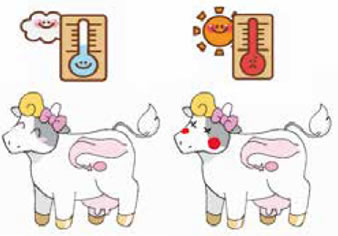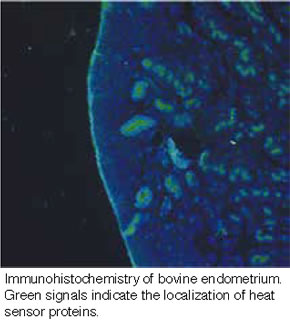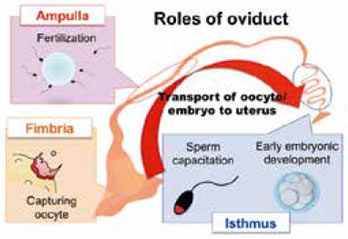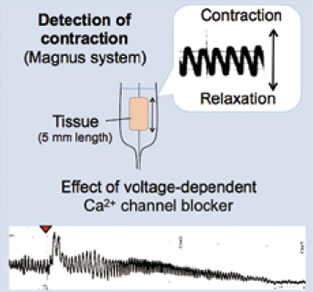Research Area : Reproductive Physiology
Study on uterine function of cattle under heat stress condition

Global warming affects agriculture and food supply. In livestock industry, extraordinarily high temperature in summer season gives stress to livestock species and reduces their productivity, such as daily gain of body weight and milk production.
Recently, it is becoming a big issue that the heat stress decrease pregnancy rate of dairy cows in summer not only in Japan but also all over the world.
To solve this problem, we are investigating the effect of heat stress on uterine functions of cattle.
In our current study, it is shown that the heat stress disrupts endocrine function of bovine uterus such as prostaglandins secretion and influences the mechanism for the recognition of pregnancy in cattle, resulting in low pregnancy rate.
Now we study how the heat stress affect uterine function of cattle.

Transport systems of gametes and embryo in mammalian oviducts

Oviduct is an important organ as a site for sperm capacitation, fertilization and early embryonic development. It is also the pathway of gametes and embryo connecting the ovary to the uterus. In spite of the essential organ for establishment of pregnancy, regulating mechanisms of oviductal function are unclear.
Our aim is to clarify the physiological mechanisms which control the oviductal functions.
Spontaneous contraction of oviduct is necessary for transport of gametes and embryos, since it produces peristaltic movement. Oviduct contains endogeneous pulse generator for contraction called as “pacemaker”. Pacemaker cells generate rhythmic spontaneous deporalization leading to the contraction of smooth muscle cells. In our project, the factors involved in spontaneous contraction are investigated using bovine oviductal tissues. In additon, we also try to identify the pacemaker cell in mammalian oviducts.




